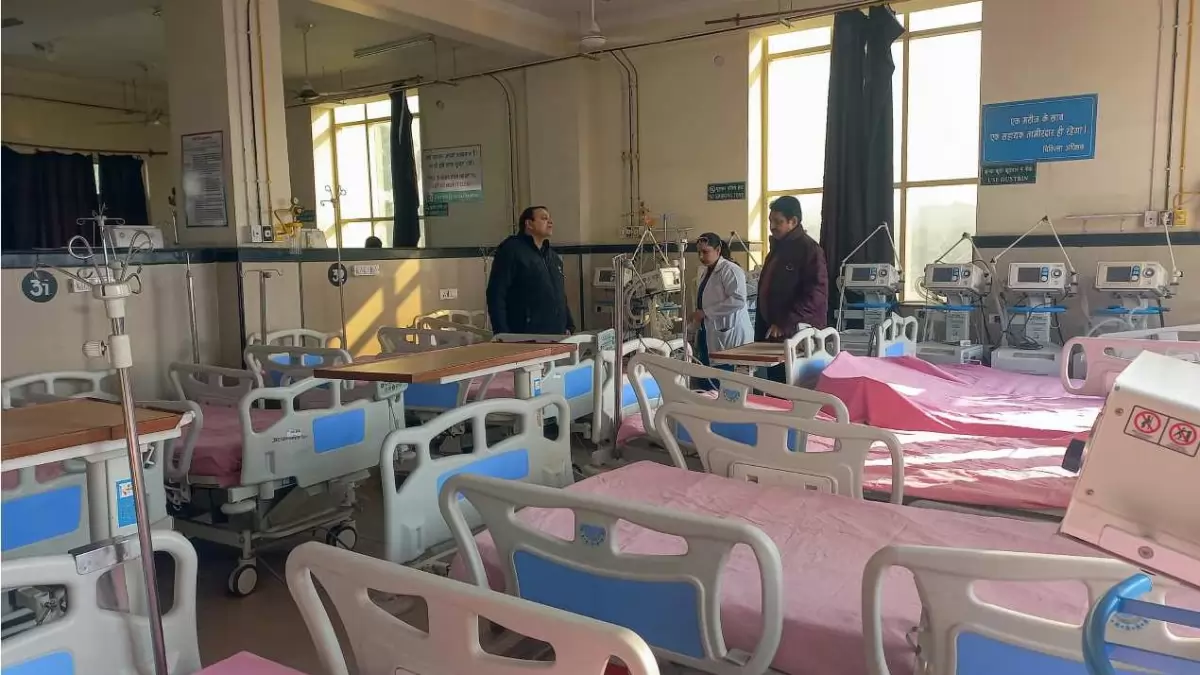
ANI
New Delhi: In the midst of a surge in COVID-19 cases in India and the emergence of the JN.1 subvariant, the India SARS-CoV-2 Genomics Consortium (INSACOG) chief, Dr NK Arora, offers valuable insights. As concerns rise, Dr Arora reassures that, at present, there is no necessity for an additional vaccine dose against the JN.1 subvariant.
Speaking to ANI, Dr Arora emphasises the importance of prevention, particularly for individuals aged 60 and above, those with comorbidities, and individuals on immunosuppressive drugs. While asserting the need for precautionary measures, he clarifies that there is currently no recommendation for additional vaccine doses.
Dr Arora sheds light on the diverse subvariants of Omicron, with over 400 mutations identified by INSACOG. Encouragingly, none of these subvariants, including JN.1, exhibit increased severity. The symptoms associated with JN.1 align with those of other Omicron subvariants, encompassing fever, nasal discharge, cough, occasional diarrhea, and severe body aches, with a typical recovery period of two to five days.
Despite an uptick in cases, Dr Arora provides a reassuring statistical overview. Over the past eight weeks, India has witnessed 22 cases of JN.1, representing less than 1% of all isolated cases. Importantly, there is no evidence of rapid spread, hospitalization rates remain stable, and the majority of cases are concentrated in specific regions, such as Kerala.
#WATCH | On Covid-19 new variant Jn.1, Dr NK Arora, Chairman, INSACOG says, " Within India...from October last week and then till now in last 8 weeks, we have seen 22 cases...there is no evidence that it is spreading very rapidly...Jn.1 is less than 1% of all the isolates so far.… pic.twitter.com/fPyLgoPJrQ
— ANI (@ANI) December 23, 2023
Dr NK Arora furteher emphasises the need for vigilance without succumbing to panic. While acknowledging the recent increase in cases, he underscores the importance of measured responses. The rise in reported cases is not synonymous with increased hospitalization or severe outcomes, reinforcing the message that a vigilant stance is crucial.
The World Health Organization (WHO) has classified JN.1 as a variant of interest (VOI), distinct from its parent lineage BA.2.86. While acknowledging its increased spread, the overall global risk posed by JN.1 is currently assessed as low based on available evidence. WHO advises ongoing monitoring and updates its risk evaluation as needed.
As winter approaches in the Northern Hemisphere, the WHO highlights potential challenges with the JN.1 variant contributing to respiratory infections. The organization recommends standard preventive measures, including mask-wearing, physical distancing, respiratory etiquette, regular hand hygiene, and testing for symptoms or potential exposure.
In conclusion, the current landscape calls for vigilant optimism. Dr Arora's insights provide a nuanced understanding of the situation, dispelling unnecessary panic and promoting a measured approach to public health. Continuous monitoring, preventive measures, and adherence to established guidelines are pivotal in navigating the evolving scenario.





Copyright © 2025 Top Indian News
